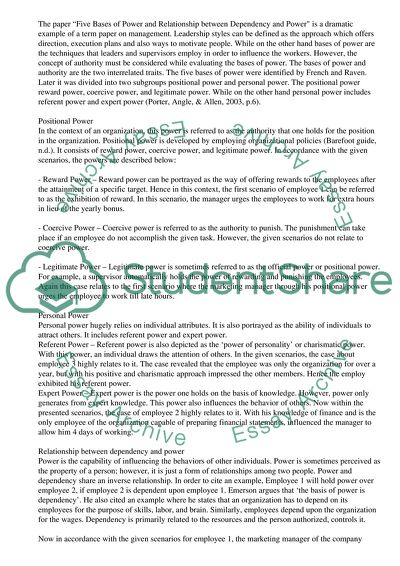Five Bases of Power by French and Raven Term Paper. https://studentshare.org/management/1779419-analyze-leadership-theories-methods-and-tools-in-given-situations-and-select-the-appropriate-behavior-of-the-leader
Five Bases of Power by French and Raven Term Paper. https://studentshare.org/management/1779419-analyze-leadership-theories-methods-and-tools-in-given-situations-and-select-the-appropriate-behavior-of-the-leader.


